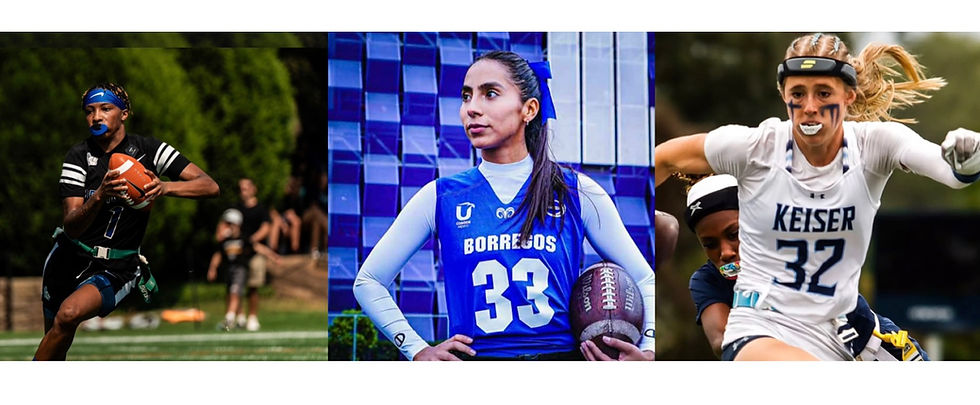To Leave or Not: The Watson Decision
- Jordan Inver
- Jul 23, 2021
- 3 min read
Updated: Sep 2, 2022
Deshaun Watson, Houston Texans quarterback, has been accused of sexual misconduct by several massage therapists. The investigation continues with no new answers or timeline in the lawsuit he is facing. Watson is facing 22 active civil lawsuits, each filed by women who accuse Watson of sexual assault and harassment. According to Jeremy Fowler of ESPN, Watson has not engaged in any discussions about settling with the women who are party to the lawsuit. Furthermore, he isn’t scheduled to give his deposition until February 2022, after Super Bowl LVI. While the legal battle seems to be far from over, and with training camp right around the corner, the NFL may be forced into making a decision about Watson’s playing status for the 2021-2022 NFL Season. The NFL has two choices, either the NFL allows Watson to play, or he is placed on paid leave pursuant to the Commissioner’s Exempt List.
As NFL.com points out, the NFL Commissioner’s Exempt List is a “special player status available to clubs only in unusual circumstances” including those players “who have been declared by the Commissioner to be temporarily exempt from counting within the Active List limit. Only the Commissioner has the authority to place a player on the Exempt List; clubs have no such authority, and no exemption, regardless of circumstances, is automatic.” In other words, Commissioner Roger Goodell has broad authority and discretion in matters of this nature. However, when deciding if a player should be on the exempt list, the “Leave with Pay” section of the NFL’s Personal Conduct Policy comes into play:
“A player may be placed on paid administrative leave pursuant to the Commissioner Exempt List under either of the following circumstances: First, when a player is formally charged with: (1) a felony offense; or (2) a crime of violence, meaning that he is accused of having used physical force or a weapon to injure or threaten a person or animal, of having engaged in a sexual assault by force or against a person who was incapable of giving consent, or having engaged in other conduct that poses a genuine danger to the safety or well-being of another person. The formal charges may be in the form of an indictment by a grand jury, the filing of charges by a prosecutor, or an arraignment in a criminal court.
“Second, when an investigation leads the Commissioner to believe that a player may have violated this Policy by committing any of the conduct identified above, he may act where the circumstances and evidence warrant doing so. This decision will not reflect a finding of guilt or innocence and will not be guided by the same legal standards and considerations that would apply in a criminal trial.
“Third, in cases in which a violation relating to a crime of violence is alleged but further investigation is required, the Commissioner may place a player on the Commissioner Exempt List on a limited and temporary basis to permit the league to conduct a preliminary investigation. Based on the results of this investigation, the player may be returned to duty, be placed on the Commissioner Exempt List for a longer period or be subject to discipline.”
The first paragraph of this section is irrelevant unless Watson is formally charged with criminal charges. While a criminal investigation has been launched for Deshaun Watson, no formal decision about charges has been made. The second paragraph becomes vital to Watson and his playing status. If the outcome of the investigation causes Goodell “to believe that [Watson] may have violated” the Personal Conduct Policy by engaging in any one of the acts described in the first paragraph, Goodell is permitted to place Watson on paid leave. In other words, Watson would be paid his salary, but is not counted as a member of the active roster and cannot practice or play in games. The third paragraph applies when there are accusations but there is no opportunity for the NFL to investigate those accusations before the player takes the field.
Throughout the NFL’s history, a number of players have been placed on the NFL’s exempt list. Most notably, Michael Vick was on the list from August 24, 2007, to July 27, 2009, after his dog-fighting incident. Ben Roethlisberger was also on the exempt list for the first six games of the 2010 NFL season because of a sexual assault allegation.
Overall, the policy of putting a player on the Commissioner’s exempt list gives Goodell broad discretion. Unless Watson settles the 22 lawsuits, the decision as to his playing status looms large over the Houston Texans, the NFL, and ultimately, Deshaun Watson. And even if Watson settles the cases, the NFL might still take him off the field. He does not control his own destiny at this point.
Jordan Inver is a 2L at Villanova Law and can be contacted at jinver@law.villanova.edu








